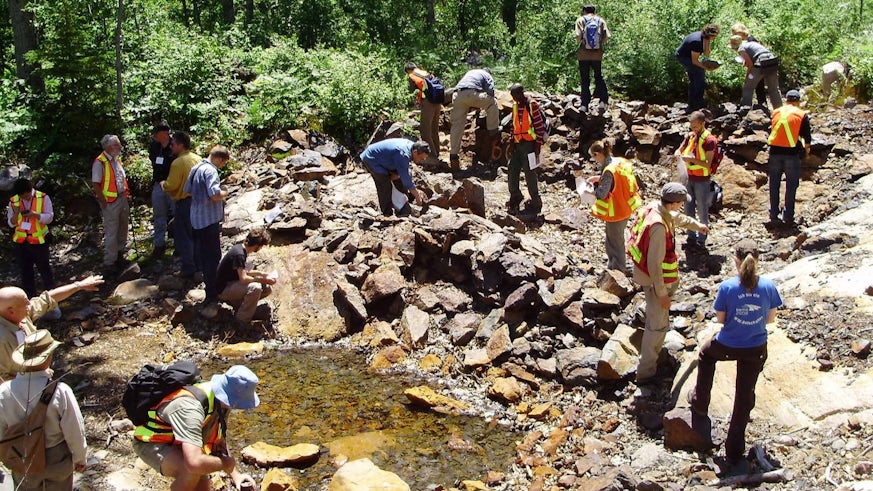Cardiff joins £2.6 million centre to train new generation of mineral resources experts
7 March 2024

Academic researchers and industry practitioners will train a new generation of mineral resource experts to support the UK’s transition to sustainable energy after securing funding from the Natural Environment Research Council (NERC), part of UK Research and Innovation (UKRI).
One of six academic partners, Cardiff University will receive a share of £2.6 million to support the Training and Research Group for Energy Transition Mineral Resources (TARGET) – a multi-institution centre for doctoral training to address the skills and research needs for the UK.
Led by the University of Leicester, TARGET is one of four new NERC-funded centres which will combine PhD research projects with a multidisciplinary training programme to provide skills in mineral exploration, processing, finance, policy and sustainability at all stages of a mineral’s use – from a rock in the ground to the end of a product’s useful life.
Professor Iain McDonald, Cardiff University’s TARGET lead from the School of Earth and Environmental Sciences, said: “TARGET has arisen out of the UK government’s critical minerals strategy and the recognition that, while we are going to need more supplies of metals to deliver the energy transition, this needs to be done efficiently and with the least environmental and social impact possible.”
Each year, over 3 billion tonnes of metals are produced from mineral resources, which underpin society. Without them there would be no infrastructure, no industry and no technology.
The UK’s transition to renewable energy generation and use – through wind turbines, solar panels and electric vehicles – is increasing the demand for mineral resources.
Some are considered ‘critical’ – economically important but with challenged supply chains that are vulnerable to disruption.
Growing expertise in critical mineral resources will help to develop secure and sustainable supply.

These are tough challenges but the research and training that will be fostered by the TARGET programme will create a new generation of highly skilled professionals who will contribute to solving them.
TARGET’s training will be led by a mix of academic researchers and industry practitioners.
The parentship of the centre includes some of the most important global companies in mining, mineral analysis, environmental standards, and finance.
Professor Peter Liss, Interim Executive Chair of NERC, said: “This investment by NERC will equip the next generation of environmental science researchers with the technical and professional skills to tackle some of the most significant challenges facing the UK and globally.”
TARGET will operate alongside other UKRI programmes, including the £15 million CLIMATES programme being delivered by Innovate UK, boosting rare earth circularity, to provide opportunities for UK industry and research to enhance the responsible supply of minerals.
Science, Research, and Innovation Minister Andrew Griffith added: “Backing our brightest students to tackle issues as vital as flooding and protecting our water quality is an investment in protecting the landscape of the UK, while defending our planet and the resources we need to deliver us all healthier and more prosperous lives.
“With more than £10m in funding over the coming years it will also help to skill-up students in high-value research, which will grow the UK economy and ensure we fulfil the potential of the talent spread throughout our country.”
Find out more about the TARGET Centre, which is recruiting its first cohort of researchers to start in October 2024.
Share this story
The School is committed to achieving the highest standards in research and education and to providing a rich and varied research-led environment.



